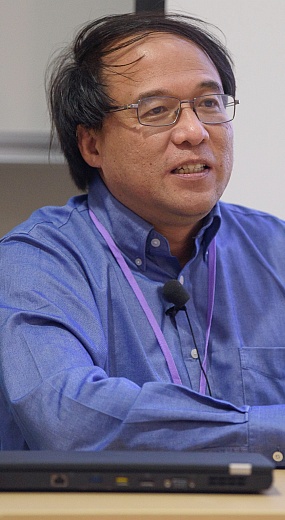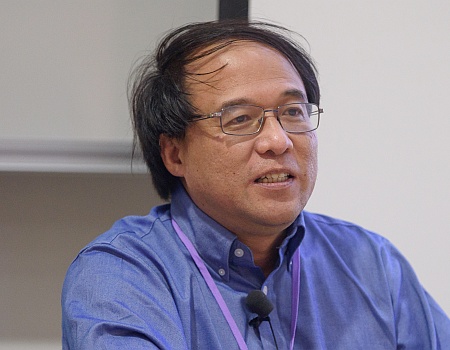

Prof. WEN Xiao-Gang
文小剛教授
Massachusetts Institute of Technology
Prof. WEN Xiao-Gang
文小剛教授
Massachusetts Institute of Technology
Research Areas:
Condensed Matter Theory
Prof. Wen Xiao-Gang received his MA and PhD in Physics from Princeton University in 1983 and 1987 respectively. In 1987-1989, he worked as a member in the Institute for Theoretical Physics at the University of California, Santa Barbara where he switched his research field from superstring theory to condensed matter physics. He then became a five-year member at the Institute for Advanced Study at Princeton University. In 1991, he joined the Massachusetts Institute of Technology (MIT) as an Assistant Professor and is currently the Cecil and Ida Green Professor of Physics at MIT. In 2010, he was appointed Distinguished Visiting Research Chair by the Perimeter Institute for Theoretical Physics in Canada and spent two years of visit there in 2012-2014.
Prof. Wen's main research area is condensed matter theory. He has been working on strongly correlated electronic systems, which include theory of highly entangled quantum systems, mathematical foundation of many-body entanglements, theory of high temperature superconductors, origin and unification of elementary particles and theory of quantum hall effect and non-abelian statistics. He introduced the notion of topological order and quantum order, to describe a new class of matter states. This opens up a new research direction in condensed matter physics. He is the author of the publications, "Quantum Field Theory of Many-body Systems: From the Origin of Sound to an Origin of Light and Electrons" (2004) and "Quantum Information Meets Quantum Matter: From Quantum Entanglement to Topological Phases of Many-Body Systems" (2019).
Prof. Wen was elected a Fellow of Alfred P. Sloan Foundation in 1992, a Fellow of the American Physical Society in 2002 and a Member of the US National Academy of Sciences in 2018. He is the co-winner of the 2017 Oliver E. Buckley Condensed Matter Physics Prize and the recipient of 2018 Dirac Medal.


